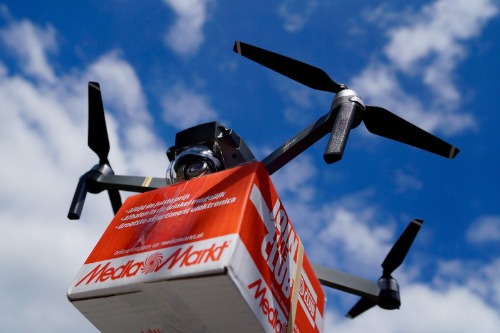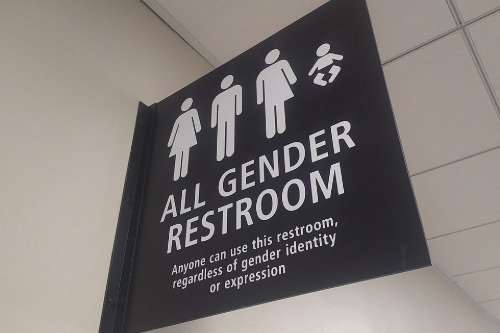1. Lab-Grown Meat

Ten years ago, meat that didn’t come from animals sounded like a sci-fi daydream or a Silicon Valley stunt. But today, lab-grown meat is real, edible, and even USDA-approved in limited cases. Companies like GOOD Meat and Upside Foods are developing cell-based chicken and beef, and they’re hiring lobbyists to make sure the government treats their products like food—not biohazards, Andrew Jacobs and Emily Anthes of The New York Times explain. These lobbyists are already working on labeling rules and trying to navigate a regulatory gray area between the USDA and FDA.
They’re also fighting to secure funding for food-tech research and to ease the path to mass-market approval. What was once a test tube novelty now has a foot in the farm bill. The goal isn’t just market access—it’s legitimacy. And in Washington, that requires someone on your payroll who speaks fluent bureaucracy.
2. AI-Generated Art

A decade ago, AI couldn’t draw anything more impressive than a wonky face or a psychedelic blob. Now, tools like Midjourney and DALL·E can produce commercial-quality art in seconds, raising serious legal and ethical questions, Maxwell Rabb of Artsy explains. Copyright, attribution, and training data have become major flashpoints. So naturally, both creators and AI developers have brought in lobbyists.
These advocates are working to influence how the law defines originality and ownership in the age of machine-made content. Artists want protections; tech firms want flexibility. The battles are already playing out in Congress and courtrooms. This isn’t just about art—it’s about who controls the creative future.
3. Crypto Kitties

When CryptoKitties launched in 2017, people saw it as a joke—a way to trade cartoon cats on the blockchain. It was a novelty that briefly clogged Ethereum and then faded into niche internet history. But those pixelated pets laid the groundwork for the NFT explosion, Rakesh Sharma of Investopedia explains. Today, digital asset lobbying includes everything from crypto tokens to collectibles like CryptoKitties.
Now, industry groups are pushing for clearer tax guidance and protection from overreach by the SEC. They’re asking lawmakers to draw lines between securities and “just-for-fun” tokens. What seemed like a digital Tamagotchi now plays into billion-dollar policy debates. Apparently, even your fake cat needs legal representation.
4. TikTok

In 2015, TikTok wasn’t even around—its predecessor, Musical.ly, was barely scraping by as a lip-sync app for tweens. Today, TikTok is a cultural force and a political hot potato, with over 1 billion users worldwide. U.S. lawmakers worry about its ties to China and possible data exploitation. So ByteDance, TikTok’s parent company, has gone full Washington.
They’ve hired high-profile lobbyists and public relations firms to argue the app’s case in Congress. The company wants to stave off bans and prove it’s not a security threat. They’ve even launched charm offensives with think tanks and tech roundtables. From dance challenges to data hearings—that’s quite the glow-up.
5. Drone Delivery

Ten years ago, drone delivery sounded like a corporate pipe dream—cool for a commercial, not your front porch. But now companies like Wing and Zipline are actually dropping off meds, coffee, and fast food in test markets. They’re angling for national scale, and that means dealing with the FAA, local zoning laws, and air traffic control rules, Christopher Mims of The Wall Street Journal explains. Enter the lobbyists.
These advocates are fighting for beyond-line-of-sight permissions and new flight corridors. They want a clear framework for commercial drone usage, not a patchwork of city-by-city rules. It’s a battle between old aviation norms and a new vision for sky-based logistics. The Jetsons didn’t have to deal with municipal airspace councils—but we do.
6. Microdosing Mushrooms

Back in 2015, talking openly about taking magic mushrooms—let alone microdosing them—was more likely to get you fired than funded. But now, psilocybin is being studied seriously for its therapeutic potential, especially in treating depression and PTSD. With clinical trials moving forward and decriminalization efforts gaining ground, advocacy groups have formed to shape the conversation in D.C. And yes, they’re bringing in lobbyists.
Organizations like the Psychedelic Medicine Coalition are working to influence FDA policy and secure federal research dollars. They’re also helping craft state-level legislation to legalize or decriminalize controlled use. Mental health groups, veterans’ organizations, and researchers are now unexpected allies in this push. Ten years ago, this was taboo—now it’s a line item in budget hearings.
7. Virtual Influencers

The idea of a non-human influencer landing brand deals was laughable in 2015. But now, digital personas like Lil Miquela boast millions of followers and partnerships with brands like Prada. These AI-generated avatars are reshaping marketing—and raising new legal questions. So naturally, someone hired a lobbyist.
The firms behind these characters want regulations on deepfakes, clarity on digital likeness rights, and protection from knockoff avatars. They also want guidelines for disclosing when followers are interacting with a synthetic persona. What started as a branding stunt is now a lobbying priority. And the avatars are just getting started.
8. Esports Teams

In 2015, esports was still considered a niche pastime—fun, but not exactly policy-worthy. Now, competitive gaming has gone mainstream, with massive arenas, million-dollar prizes, and global teams. Organizations like FaZe Clan and Team Liquid are now brands, businesses, and cultural powerhouses. And they want the same privileges as traditional sports.
Lobbyists are pushing for international visa reforms for players, legal betting frameworks, and access to education grants. There’s also growing pressure to address youth labor laws in gaming. What was once a LAN party is now a policy roundtable. The joystick kids grew up—and brought lawyers.
9. Self-Driving Trucks

The idea of an 18-wheeler with no driver would’ve sounded like science fiction ten years ago. Now, autonomous freight trucks are already being tested on U.S. highways. Companies like Aurora, Embark, and Kodiak Robotics are putting serious miles on real roads. To move forward, they need government buy-in—and a lot of it.
Lobbyists are working to influence regulations on safety standards, insurance requirements, and commercial driver licensing. Labor groups are weighing in too, concerned about what this means for millions of truckers. This is one of the biggest tech-versus-labor fights on the horizon. And it’s already rumbling through Capitol Hill.
10. Plant-Based Chicken Nuggets

A decade ago, meat alternatives were mostly tasteless hockey pucks found in health food stores. Now, brands like Beyond and Impossible are making plant-based chicken nuggets that actually taste like chicken. These companies are carving out a huge market share and disrupting Big Meat in the process. But they need policy support to thrive.
Their lobbyists are pushing for inclusion in federal food subsidies and school lunch programs. They’re also fighting meat industry efforts to ban terms like “plant-based meat” on packaging. It’s a labeling war with nutritional and environmental stakes. Even fake chicken needs real political muscle.
11. The Metaverse

The word “metaverse” barely existed ten years ago outside niche corners of tech fandom. But since Meta rebranded and made virtual worlds a corporate priority, it’s become a serious policy issue. Companies are now lobbying for tax treatment on digital assets, broadband infrastructure, and online safety regulation. Because even virtual reality needs real-world rules.
These firms are asking for clearer laws on ownership of virtual goods and property. They’re also trying to shape the conversation around moderation and user rights in immersive spaces. Lobbyists are positioning the metaverse as both an economic opportunity and a national priority. And lawmakers are paying attention—goggles and all.
12. Gender-Neutral Bathrooms

Ten years ago, most public discussions of gender-neutral bathrooms were fringe or hypothetical. Now, they’re a key issue in civil rights and public infrastructure policy. Advocacy groups are lobbying at every level of government to include all-gender restrooms in public buildings, airports, and schools. This is about safety, dignity, and visibility.
They’re also fighting back against laws that ban or limit such facilities. Major companies have joined in, seeing inclusion as good business and good policy. What started as activism is now a full-on legislative agenda. Bathroom signs, it turns out, are political.
13. Digital Resurrection

A decade ago, bringing someone back to life via technology was pure Black Mirror. But now, deepfake and AI voice tools can recreate dead celebrities—and even private citizens—with startling realism. Companies are doing this for ads, movies, and personal memorials. And yes, they’ve got lobbyists.
Legal experts and tech reps are pushing for clarity on posthumous digital rights and consent laws. They want to define who owns a digital likeness and how it can be used commercially. It’s a strange new frontier where ethics, tech, and grief collide. Even the dead are now part of the policy process.


